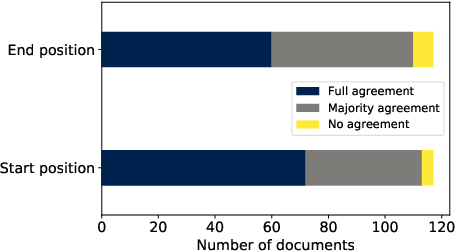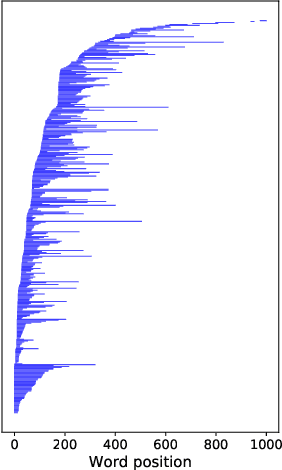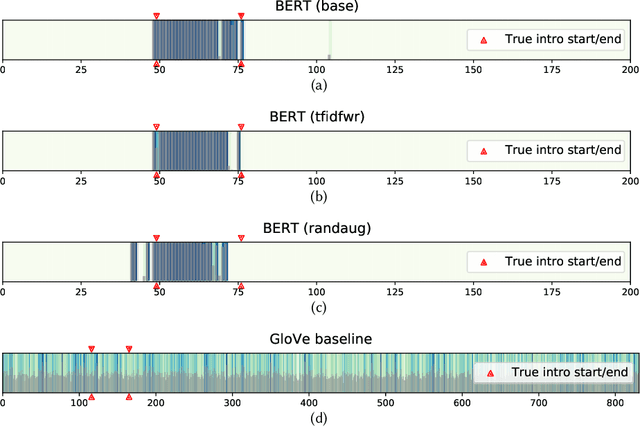Dennis Egan
Identifying Introductions in Podcast Episodes from Automatically Generated Transcripts
Oct 14, 2021



Abstract:As the volume of long-form spoken-word content such as podcasts explodes, many platforms desire to present short, meaningful, and logically coherent segments extracted from the full content. Such segments can be consumed by users to sample content before diving in, as well as used by the platform to promote and recommend content. However, little published work is focused on the segmentation of spoken-word content, where the errors (noise) in transcripts generated by automatic speech recognition (ASR) services poses many challenges. Here we build a novel dataset of complete transcriptions of over 400 podcast episodes, in which we label the position of introductions in each episode. These introductions contain information about the episodes' topics, hosts, and guests, providing a valuable summary of the episode content, as it is created by the authors. We further augment our dataset with word substitutions to increase the amount of available training data. We train three Transformer models based on the pre-trained BERT and different augmentation strategies, which achieve significantly better performance compared with a static embedding model, showing that it is possible to capture generalized, larger-scale structural information from noisy, loosely-organized speech data. This is further demonstrated through an analysis of the models' inner architecture. Our methods and dataset can be used to facilitate future work on the structure-based segmentation of spoken-word content.
 Add to Chrome
Add to Chrome Add to Firefox
Add to Firefox Add to Edge
Add to Edge